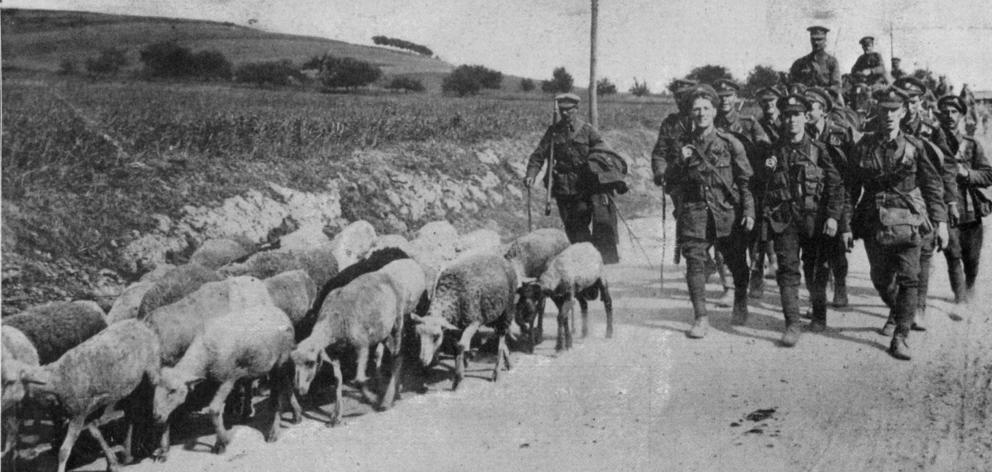
When big casualties had been anticipated the Army Council had asked that the reinforcements be doubled for the following five months. The request had been complied with, as had been done with all requests that had come from the Army Council. When it was found that the casualties were not heavy he had communicated with the Army Council, asking whether the increased drafts should be continued, and he had received the reply that it would not be necessary. The Defence Department has been criticised, but it had never sent one more man from New Zealand than was necessary. It had acted on the advice of the Army Council in the Motherland.
Mercantile Marine appeal
The monthly meeting of the executive of the Otago Patriotic and General Welfare Association was held yesterday morning in the Town Hall. There were 15 gentlemen in attendance, and the Mayor of Dunedin (Mr J. J. Clark) presided. Mr J. A Johnstone (treasurer) applied, on behalf of the Citizens’ Committee set up to raise £20,000 in Otago and Southland for the Mercantile Marine Sailors’ Fund for a donation of £500 from the unconditional fund. The writer out that everyone was in agreement that the mercantile sailors were the men, of all others, who, along with the sailors of the Imperial navy, had saved the Empire and civilisation from absolute and overwhelming disaster, and yet, simply because the mercantile sailors did not form part of the Imperial services, they did not come under the British Government scheme of pensions or allowances.
Anti-loafing law
The arrest, trial, conviction and sentence of a young man in Syracuse, State of New York, for idling in war time has peculiar interest as marking the first pronounced and clear-cut case of the kind under the "anti-loafing" law in the state named. He had committed no offence in an ordinary sense. He was not a vagrant, for he had money. The new statute, however, had made him an offender, subject to penal correction, in that he was performing no useful labour at a time when the industries of the country as well as the army and navy, were in great need of manpower. This young man said that he had never worked, did not find it necessary to work; in fact, would not work. But he will work, nevertheless, since he was sentenced to six months’ hard labour in the county penitentiary. The possession of "visible means of support" (comments an American writer) formerly excused this type of idler. He could fritter his time away, while the penniless loafer was constantly liable to arrest for vagrancy.
Retreat preparations
There are various indications, confirmed by serial observation, that the Germans are preparing for a fairly important retirement, in Flanders, while the French operations west of Soissons give the impression that only certain troops are being employed to cover the withdrawal of the enemy. The increased resistance at certain points between the Somme and the Avre and the Oise is mainly due to our hustling their retreat. — ODT, 20.8.1918
• COPIES OF PICTURE AVAILABLE FROM ODT FRONT OFFICE, LOWER STUART ST, OR WWW.OTAGOIMAGES.CO.NZ












